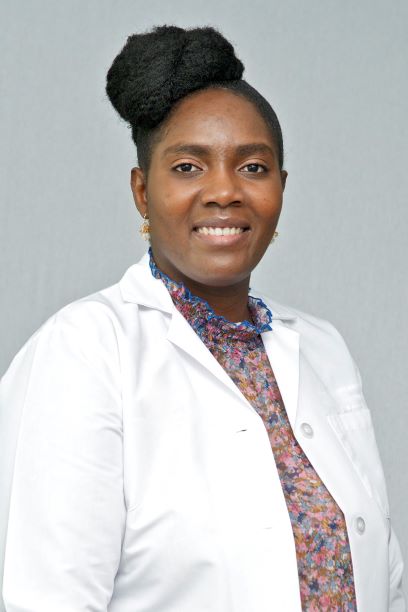
The colon is the first part of the large intestines of the gastrointestinal tract, and the rectum and the anus make up the second part of the large intestines. Colorectal cancer is a form of malignancy that arises in the cells of the large intestines due to uncontrolled division of these abnormal cells.1 The third most common cancer diagnosed in both men and women in the U.S. is colorectal cancer with an estimated 153,020 cases expected to be diagnosed in 2023.2 It also happens to be the second most common cause of death in both men and women in the U.S. with an estimated 52,550 expected deaths in 2023.2 Some of the risk factors associated with colorectal cancer include older age; personal or family history of polyps or colorectal cancer; having inflammatory bowel disease such as ulcerative colitis or Crohn's disease, genetic syndromes such as familial adenomatous polyposis (FAP) and hereditary non-polyposis colorectal cancer (Lynch Syndrome); obesity; smoking and alcohol abuse; and ethnic background, with Native Americans and African Americans having the highest rates of colorectal cancer in the U.S.3,4
A colonoscopy is a procedure performed by a doctor using an instrument called a colonoscope (which is a long thin flexible tube that has a light and camera at its end) to look in your large intestines (colon and rectum) and terminal ileum (the last part of the small intestines) by initially going through the anus.5,6 Screening colonoscopies are very important because they can help prevent colorectal cancer especially if precancerous polyps are found and removed during the procedure.7
With the increased awareness and screening of patients older than 50 years old with screening colonoscopies, the incidence of colorectal cancer in older adults is declining, however, the incidence of colorectal cancer in patients younger than 50 years has been on the rise by about 1%-2% yearly increase in the incidence for the past 20-30 years.2 This is because, before 2021, the recommended age for screening colonoscopies was 50 years or older. However, in May 2021, the U.S. Preventive Service Task Force changed its recommendation for screening colonoscopies to begin at age 45 instead of 50.8
Colorectal cancer is preventable and very treatable especially when discovered at an early stage which also leads to increased survival. When colorectal cancer is found only in the colon or rectum, it is considered early stage or localized, however when it spreads outside of the colon or rectum, then it is considered late stage or distant.9 According to the National Cancer Institute’s Surveillance, Epidemiology, and End Results Program, the relative 5-year survival rate for localized colorectal cancer is 90.9%.9
Treatment for early-stage colorectal cancer usually involves surgery and depending on the extent of disease, may also require chemotherapy and radiation therapy. Treatment for late-stage colorectal cancer usually involves chemotherapy and sometimes surgery or radiation therapy. Some of the new advancements in the treatment of colorectal cancer involve the use of immunotherapy; which is a different form of treatment that causes one’s immune system to fight cancer by allowing the immune system to adjust itself in a way that can allow it to locate and attack cancer cells.10 Immunotherapy is now used in the treatment of many different cancers and in colorectal cancer, it is mostly used in the treatment of patients with a specific type of colorectal cancer such as Lynch syndrome (which is one of the inherited forms of colon cancer).
Some things you can do to protect your health and decrease your risk of getting colorectal cancer include eating a healthy diet, exercising and quitting smoking. It is time to see a doctor if you notice changes in your bowel habits or blood in your stools associated with other symptoms such as weight loss, abdominal pain, diarrhea, constipation, nausea or vomiting. Furthermore, if you are 45 years or older and have never gotten a colonoscopy, then it is time to get a screening colonoscopy today!
References:
- “Colorectal Cancer,” American Association for Cancer Research, accessed February 21, 2023, https://www.aacr.org/patients-caregivers/cancer/colorectal-cancer/.
- “Key Statistics for Colorectal Cancer,” American Cancer Society, accessed February 21, 2023, https://www.cancer.org/cancer/colon-rectal-cancer/about/key-statistics.html.
- “What Are the Risk Factors for Colorectal Cancer,” Centers for Disease Control and Prevention, accessed on March 4, 2023, https://www.cdc.gov/cancer/colorectal/basic_info/risk_factors.htm.
- “Colorectal Cancer Risk Factors,” American Cancer Society, accessed March 4, 2023, https://www.cancer.org/cancer/colon-rectal-cancer/causes-risks-prevention/risk-factors.html.
- “Colonoscopy,” American Cancer Society, accessed March 4, 2023, https://www.cancer.org/treatment/understanding-your-diagnosis/tests/endoscopy/colonoscopy.html.
- “Colonoscope,” National Cancer Institute, accessed March 4, 2023, https://www.cancer.gov/publications/dictionaries/cancer-terms/def/colonoscope.
- “Colorectal Cancer Awareness Month,” American Association for Cancer Research, accessed March 4, 2023, https://www.aacr.org/patients-caregivers/awareness-months/colorectal-cancer-awareness-month/.
- “Colorectal Cancer: Screening,” U.S. Preventive Services Task Force, accessed February 21, 2023, https://uspreventiveservicestaskforce.org/uspstf/recommendation/colorectal-cancer-screening.
- “Cancer Stat Facts: Colorectal Cancer,” National Cancer Institute, accessed March 4, 2023, https://seer.cancer.gov/statfacts/html/colorect.html.
- “Immunotherapy,” American Cancer Society, accessed March 4, 2023, https://www.cancer.org/treatment/treatments-and-side-effects/treatment-types/immunotherapy.html.

